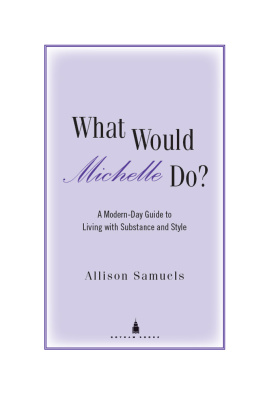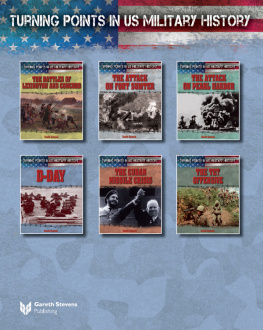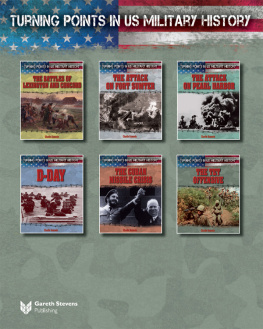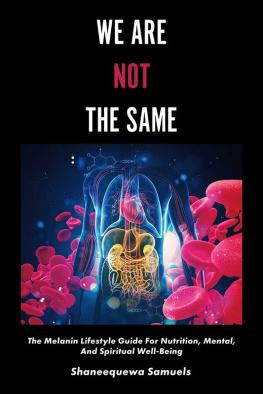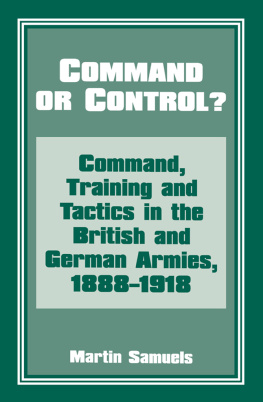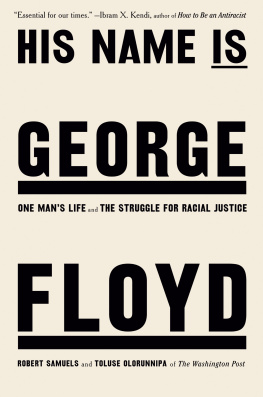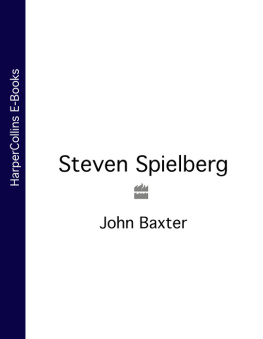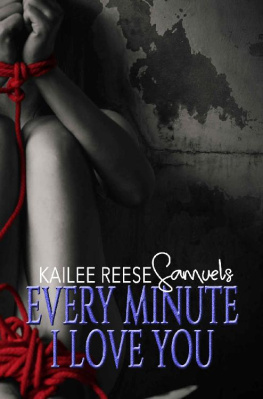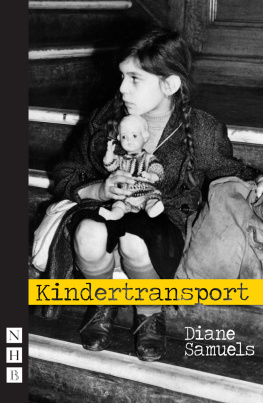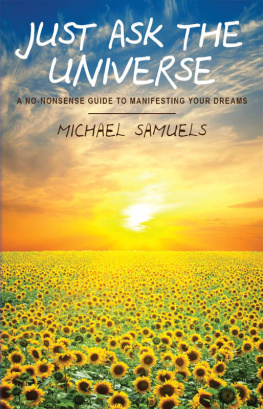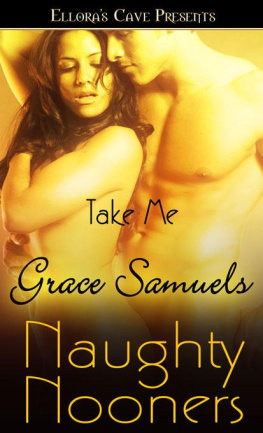OFF THE RECORD
A Reporter Unveils the Celebrity Worlds of
Hollywood, Hip-hop, and Sports
Allison Samuels

To my grandmothers, Classie Anderson and Loretta Samuels,
for always watching over me.
And to the late Mrs. Coretta Scott King
for being patient with me as a young journalist
and inspiring me beyond words.
Contents
Bow Down (to a Baller Thats Greater Than You):
Shaquille ONeal, Kobe Bryant, and the
Los Angeles Lakers
And the Oscar Goes to
Angela Bassett and Whoopi Goldberg
Let Me Ride: Death Row, Snoop Dogg,
and Dr. Dre
Ballers and Shot Callers: Ray Lewis, Allen Iverson,
and A-Rod
Creepin On Ah Come Up: Jodecis DeVante Swing,
Tyra Banks, Bone Thugs-N-Harmony,
Lil Kim, and Eminem
On Lockdown: Suge Knight and
Malcolm Shabazz in Prison
The Players Club:
A Behind-Closed-Doors World Where Hollywood,
Hip-hop, and Sports Make It Rain
A Journey Full Circle:
A Tribute to Coretta Scott King
What a blessing to be able to write this book. Oftentimes a reporter doesnt always reflect on how the stories they write might affect other people, much less themselves. Recounting my experiences of reporting over more than a decade reminds me how blessed I truly am.
Another blessingGilda Squire, my editor and confidante who saw this project from conception to completion. There are really no words!
To everyone at Amistad/HarperCollinsDawn Davis, Rockelle Henderson, Christina Morgan, Yona Deshommes, Mark Jackson, Michael Morrison, Laura Klynstra, and all of the wonderful people on the sales teamI am grateful for all of your support and enthusiasm for this book.
My agent Luke Janklowthank you for the inspiration and encouraging words.
I thank Mark Whitaker and the editors at Newsweek magazine for allowing me to spend the past thirteen years covering some of the most amazing people and events in the world.
To my boyz (and girlz) in the hoodAndre Young, Calvin Broadus, Shaquille ONeal, and all my other subjects who made sure I never had a dull day or interview.
To my many friends and mentors who helped me get to this place in my life and career in one way or anothersometimes without even knowing itRobert Watts, Zion and Dennis Banks, NCroal, Marcus Mabry, Ann McDaniel, Mark Starr, Willie J. West, Chrissy Murray, and Marvet Britto. Thank you, thank you, thank you!!!
To James D. McJunkins, professor of journalism at Clark Atlanta Universityeverything I know about journalism I learned from you. Merci!
To my girls from my hometown of Augusta, GeorgiaDollie Williams Banks, Pammie Eagle Jimmar, and Carlotta Philowho knew, right?
A special note of thanks to my many cousins, aunts, and uncles, and in particular, my auntie Sammie (Cassaundra Cain), for allowing me to type stories on her kitchen table until the wee hours of the night in college. Much love!
And last, but certainly not least, to my mother, Classie J. West, for being my one constant cheerleader no matter what was happening in my life. Couldnt have made it here without you! Love you tons!
Y ou cant get much of an interview with anyone without some sort of connection. I dont mean the right phone number or a perky mutual friend. I mean an emotional connection where a person chooses, for whatever reason, to let you in. Finding that connection isnt always immediate for a reporter, but it has to come at some point if there is to be any decent story. I never knew if I really had the ability to connect with a subject until the summer I met the legendary director Francis Ford Coppola on the set of his film Gardens of Stone, starring James Caan, Anjelica Huston, and James Earl Jones.
It was the mid-1980s, and Coppola had experienced his share of ups and downs, mainly the difficulty of matching the numbing success of the cult classic The Godfather. A family member of mine had a role in Coppolas new film and invited me to visit just for the fun of it. I planned to go a week before summer school began at Atlanta University Center so I could start off the semester with a bang. Then came news of the death of Coppolas oldest son, Gian-Carlo, in a tragic boating accident on the Washington, D.C., set just a week before my trip. Though details were sparse, information leaked out that the twenty-two-year-old had been decapitated while joyriding with the son of the actor Ryan ONeal. I contemplated canceling my trip when I heard the news, but filming was resuming, and I had only one more week before school began.
Understandably, as soon as I arrived on the set of the film, which focused on the lives of Vietnam vets, melancholy and sadness shook me to my core. Although it was work as usual, the cast, the crew, and the Coppola family were still very much in shock, merely going through the motions. I vividly recall Coppola often taking long breaks to gaze blankly into the afternoon sky.
Given the vibe, I tried my best to tiptoe around the production, hoping to stay out of the way and just learn as much as I could about making a film. This was the first movie location Id been on, and since Id planned on focusing on entertainment journalism after college, I knew a lot could be learned just from being near one of the most prolific and brilliant directors of our time. As luck would have it, I would have an opportunity to do more than observe the director the day after I arrived. After I was introduced to him, Coppola asked me why I wanted to become a journalist. I pondered the question for a moment, slightly surprised that he even cared, and shot back, I want to keep people informed, with a different perspective. Simple, I know, but it worked.
Something clicked at that moment, and Coppola invited me into the editing trailer. There he pointed out the technology being used in the film and explained how most of it would be out-of-date in the next ten years. Fortunately, Id brought a small notebook to jot down thoughts, and this seemed a perfect moment to whip it out. As he spoke about how film would change, Coppola also spoke of his loss and how hed hoped his eldest son would have been a part of that change. Gian-Carlo had been a camera technician.
I wasnt sure what to say or why Coppola had chosen to tell me any of this. I asked a few questions about his sons plans, and the director seemed almost thankful to share them with a complete stranger. It was this moment which let me know that just maybe I had what it took to become a journalist.
I took the short interview with Coppola and turned it into a class paper that summer. My teacher found it moving enough to suggest I submit it to the Atlanta Journal-Constitution. Youth will allow you to do some pretty foolish things. I convinced my girlfriend Pammie to ride the bus with me to the downtown office of the newspaper so I could present my hand-typed masterpiece to the entertainment editor. The mans assistant looked at us as if we were aliens just arriving on planet Earth as I handed her the brown folder. It never occurred to me that the entertainment editor of a major newspaper could care less about a black college students first real journalism piece, even if I had gotten an A plus. Only at age eighteen would someone be this navely bold. But it worked. The editor called me the next day in my dorm room and offered me seventy-five dollars to print the piece as well as an internship, which began immediately.
Although I was shocked at my good fortune, it had always been my dream. From the moment I saw a Barbara Walters interview when I was in grade school, I knew that was what I wanted to do. It also helped that I was the only child of a mother who taught second grade and who brought books home like candy. Id spend my summers in our backyard in Augusta, Georgia, reading Judy Blume and Nancy Drew books until the sun went down.


